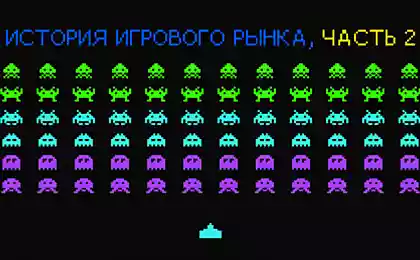952
What do children think about the games?
The theme of "children" and "not children's" games - one of the most acute and interesting lately. We also study it from different angles, for example, has recently begun to specify the age limit for our games. And recently, we decided to spend our games (of course, those for whom no age limit), a tough test - invited our usability lab several children of our employees. They gave the kids a tablet, given the time to play with him, and then ask a simple question. We were interested in how children perceive modern technology and gadgets that they feel, what they think. After all, most of our reactions and attitudes of deep laid in childhood. And today's children did not like us, 20-40-year-olds, when we were just as much as them. And that's what they said ...
Without exaggeration, the generation of 3-6 years can be called "electronic" generation, they are very little play in the "analog", "physical" games. Tablets, smart phones, laptops, consoles, desktop computers - that "the yard and sandbox" today's children.
What do they think about the games? What do those who create games? We asked simple questions related to the games, some of the children of our employees. It was not a deep detailed investigation - rather, we wanted to get a general idea of how children today perceive computer games as a whole.
Look at the faces of these children when they are playing on the plates. What a dive, renunciation of the world, what is the interest in the eyes! This is not a concentration, as adults, it's some other, more free, whether that condition.
In general, children are almost never associated computer games with people. For them it is an abstraction that exists in this world itself. Of course, in this respect there is nothing special, the children perceive almost everything around in this way. Funny else: we interviewed children think that adults, in general, do not know how to play. But the current generation of 20-30-year-olds, probably the most spoiled with all sorts of electronic games and gadgets. But perhaps such a difference in the perception of adult children of the most correct? Probably, it would be wrong if the children thought that adults play no less than them.
Source: habrahabr.ru/company/mailru/blog/216505/
Without exaggeration, the generation of 3-6 years can be called "electronic" generation, they are very little play in the "analog", "physical" games. Tablets, smart phones, laptops, consoles, desktop computers - that "the yard and sandbox" today's children.
What do they think about the games? What do those who create games? We asked simple questions related to the games, some of the children of our employees. It was not a deep detailed investigation - rather, we wanted to get a general idea of how children today perceive computer games as a whole.
Look at the faces of these children when they are playing on the plates. What a dive, renunciation of the world, what is the interest in the eyes! This is not a concentration, as adults, it's some other, more free, whether that condition.
In general, children are almost never associated computer games with people. For them it is an abstraction that exists in this world itself. Of course, in this respect there is nothing special, the children perceive almost everything around in this way. Funny else: we interviewed children think that adults, in general, do not know how to play. But the current generation of 20-30-year-olds, probably the most spoiled with all sorts of electronic games and gadgets. But perhaps such a difference in the perception of adult children of the most correct? Probably, it would be wrong if the children thought that adults play no less than them.
Source: habrahabr.ru/company/mailru/blog/216505/
























